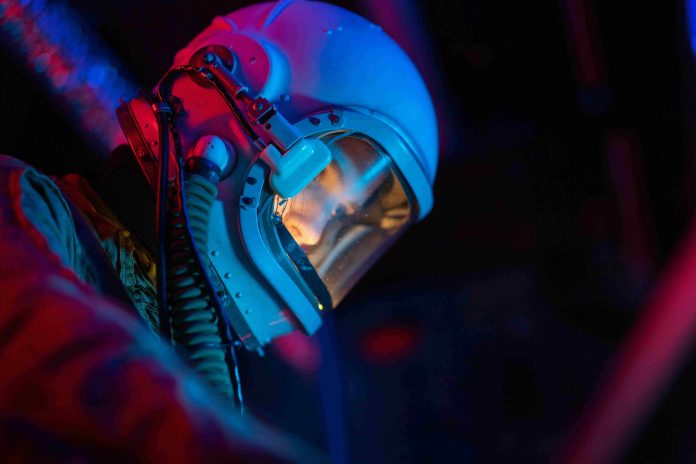In this post, I will share the career opportunities in space technology.
Imagine a career that lets you push the boundaries of human knowledge, explore the unknown, and contribute to groundbreaking discoveries.
The space industry offers a vast array of opportunities for those ready to embark on an exciting journey beyond the stars. From engineering and science to business and operations, there’s a place for everyone in this dynamic field.
Whether you’re just starting your career or looking to make a change, here are some of the exciting career opportunities in space technology. Get ready for takeoff!
Table of Contents
Aerospace Engineer
Aerospace engineers are at the forefront of designing, building, and testing aircraft, spacecraft, satellites, and missiles. Their work ensures these vehicles operate safely and efficiently.
To become an aerospace engineer, pursue a degree in aerospace engineering or a related field. Hands-on experience through internships or co-op programs is highly beneficial.
These professionals are vital in advancing space exploration and developing new technologies for space missions.
Astrophysicist
Astrophysicists study the physics of the universe, including stars, planets, and galaxies. They conduct research to understand celestial phenomena and contribute to space exploration missions.
A degree in astrophysics, astronomy, or physics is essential for this career. Involvement in research projects and internships at observatories or research institutions can provide valuable experience. Astrophysicists play a crucial role in expanding our knowledge of the cosmos.
Satellite Communications Specialist
Satellite communications specialists manage the design, implementation, and maintenance of satellite systems for communication, navigation, and data transmission. They ensure reliable and secure communication links between Earth and space.
A background in electrical engineering, telecommunications, or computer science is typically required for these careers in the space industry. Experience with satellite technology and communication systems is highly advantageous.
These specialists are key to maintaining global connectivity through space-based infrastructure.
Robotics Engineer
Robotics engineers develop robots used in space missions for tasks such as exploration, repairs, and maintenance. They design and program robotic systems to operate in harsh space environments.
A degree in robotics, mechanical engineering, or computer science is necessary. Hands-on experience with robotics projects and internships in the space industry can enhance your skills. Robotics engineers are essential in enabling autonomous operations in space.
Space Mission Planner
Space mission planners develop and coordinate the execution of space missions, from initial concept to launch and beyond. They ensure missions meet scientific, technical, and logistical goals.
A background in aerospace engineering, physics, or space studies is beneficial. Strong project management skills and experience with mission planning tools are crucial. Mission planners are instrumental in the successful deployment of space exploration projects.
Spacecraft Systems Engineer
Spacecraft systems engineers oversee the integration of various subsystems within a spacecraft, ensuring they function harmoniously. They work on power, thermal, communication, and structural systems.
A degree in aerospace engineering, systems engineering, or a related field is required. Practical experience through internships or co-op programs can provide valuable insights. Systems engineers are critical in ensuring the reliability and performance of spacecraft.
Data Analyst
Data analysts in the space industry process and interpret data collected from space missions, satellites, and telescopes. They provide insights that guide scientific research and mission planning.
A background in data science, statistics, or computer science is essential. Experience with data analysis tools and programming languages enhances your qualifications. Data analysts help transform raw data into meaningful information that drives space exploration.
Materials Scientist
Materials scientists research and develop new materials that can withstand the extreme conditions of space. They focus on improving the durability and performance of materials used in spacecraft and equipment.
A degree in materials science, chemistry, or physics is necessary. Practical experience through research projects and internships in the space industry is highly beneficial. Materials scientists contribute to the advancement of technology for space exploration.
Business Development Manager
Business development managers in the space industry identify and pursue new business opportunities, partnerships, and markets. They develop strategies to drive growth and secure funding for space projects.
A background in business administration, marketing, or a related field is advantageous. Experience in the space industry and strong networking skills are important. Business development managers play a key role in expanding the commercial aspects of space technology.
Space Policy Analyst
Space policy analysts study and develop policies that govern space exploration and utilization. They work with government agencies, private companies, and international organizations to ensure compliance with regulations and promote sustainable space activities.
A background in political science, law, or space studies is essential. Experience with policy analysis and a deep understanding of space law and regulations are beneficial. Space policy analysts help shape the legal and ethical framework for space exploration.
Conclusion
The space industry offers a wide range of career opportunities for individuals with diverse skills and interests. Whether you’re drawn to engineering, science, business, or policy, there’s a role for you in this exciting field.
By pursuing relevant education, gaining practical experience, and building a strong professional network, you can launch a successful career in space technology.
Embrace the challenge and prepare to explore a universe of possibilities in the realm of space exploration. The opportunities are vast and continuously expanding.
INTERESTING POSTS
- 7 Cybersecurity Jobs In Demand At Today’s Enterprises
- Unlocking The Power Of Smart Manufacturing: 10 Essential Elements
- The Benefits Of Studying Data Science Technology
- Business Analysis Best Practices: Lessons Learned from Industry Leaders
- Today’s Most Common Threats Against Cybersecurity
- Tips on Hiring and Retaining Talent in the Construction Industry
- A Guide on Open Enrollment for Employees
About the Author:
Mikkelsen Holm is an M.Sc. Cybersecurity graduate with over six years of experience in writing cybersecurity news, reviews, and tutorials. He is passionate about helping individuals and organizations protect their digital assets, and is a regular contributor to various cybersecurity publications. He is an advocate for the adoption of best practices in the field of cybersecurity and has a deep understanding of the industry.









